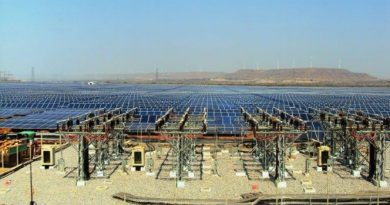Tesla Founder Elon Musk Announces $100 million Prize For Carbon Capture Technology

Tesla and SpaceX CEO Elon Musk has announced that he will donate a 100 million dollars ( approx. Rs 730 crores) towards a prize for the best technology that can capture carbon dioxide. Tesla also owns Solar city, the rooftop solar firm that has pioneered solar tiles and the Powerwall for battery storage.
Am donating $100M towards a prize for best carbon capture technology
— Elon Musk (@elonmusk) January 21, 2021
This is not the first time that Musk has decided to invest in environmental endeavours that are not his own. Earlier in 2019, he’d donated a million dollars to the Teamtrees foundation, a campaign set up by famous Youtubers MrBeast and Mark Rober, with help from the Arbor day foundation.
At the time of writing this article, Musk has said that he’ll announce further details in about a week. From what various sources speculate, the prize will most likely go to a contestant that develops and original idea that can siphon carbon dioxide directly from the air or from carbon dioxide emitting sources.
The prize that Musk has said he will contribute to is connected to the Xprize Foundation, TechCrunch reported, citing an anonymous source. The foundation is a nonprofit that puts on competitions to promote and support innovation.
There are currently around 20 carbon capture, usage and storage (CCUS) projects operating commercially worldwide, according to the International Energy Agency.
The agency said that 30 new projects have been agreed since 2017, but stressed that many more were needed to prevent carbon emissions from raising the temperature on Earth by more than 1.5 degrees Celsius above pre-industrial levels.
The IEA believes CCUS projects could reduce carbon emissions by almost a fifth, while also slashing the cost of tackling the climate crisis by 70%. Adapting heavy industry to run on clean energy is relatively difficult and expensive compared to installing carbon capture systems.
Progress on CCS technologies also underpins commitments made by many industries to cutting back on emissions, especially truly carbon intensive sectors like oil, cement and metals. Most of the global majors in this sector have pledges going as far out as 2045 to 2050, mainly because almost no existing option can take them to a zero carbon emission level by say, 2030 or 2035 even, something many firms in the services and other sectors have committed to achieve.
Planting trees, one of the cheapest and most effective way to achieve carbon capture in the short to medium term has its own limitations, beyond the obvious one of releasing carbon back once the trees die and decay. Considering that most of these efforts are built around arresting global warming to under 1.5 degrees before the year 2100, experts believe that much more needs to be done, much more faster. Hence the need for direct interventions like carbon capture technologies.
Contributed by Yash Singh.
( Yash Is a Student at Birla Vidya Niketan, New Delhi)




